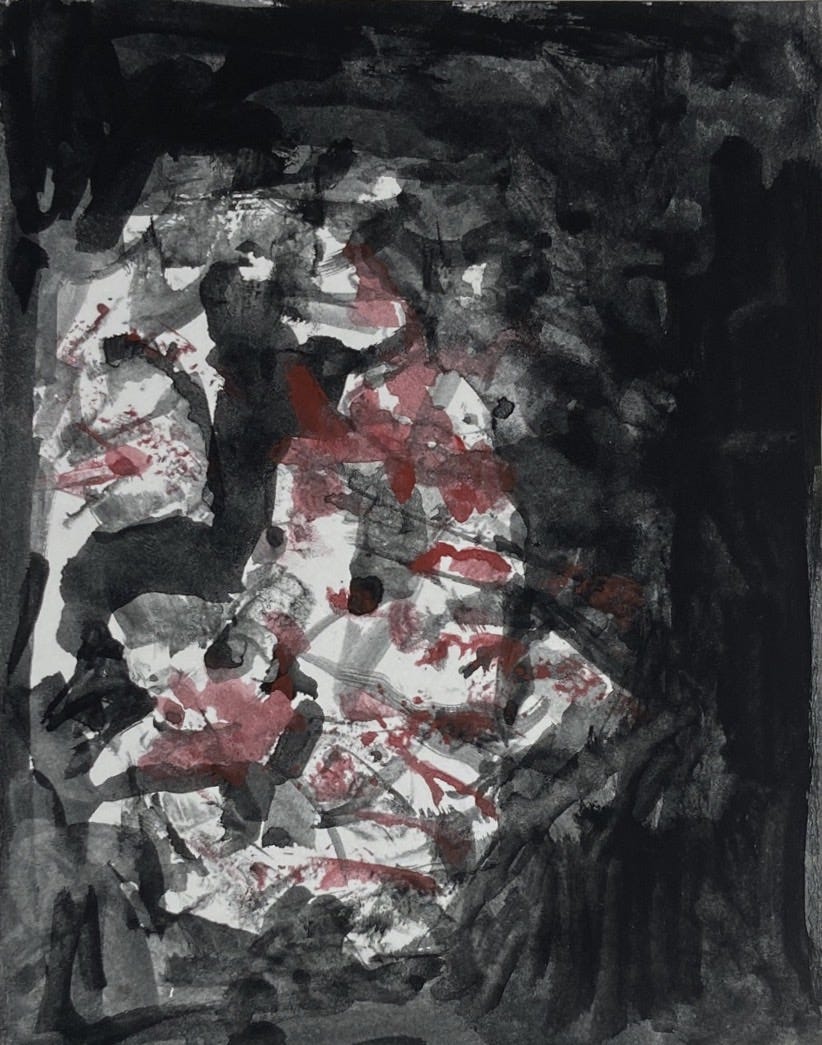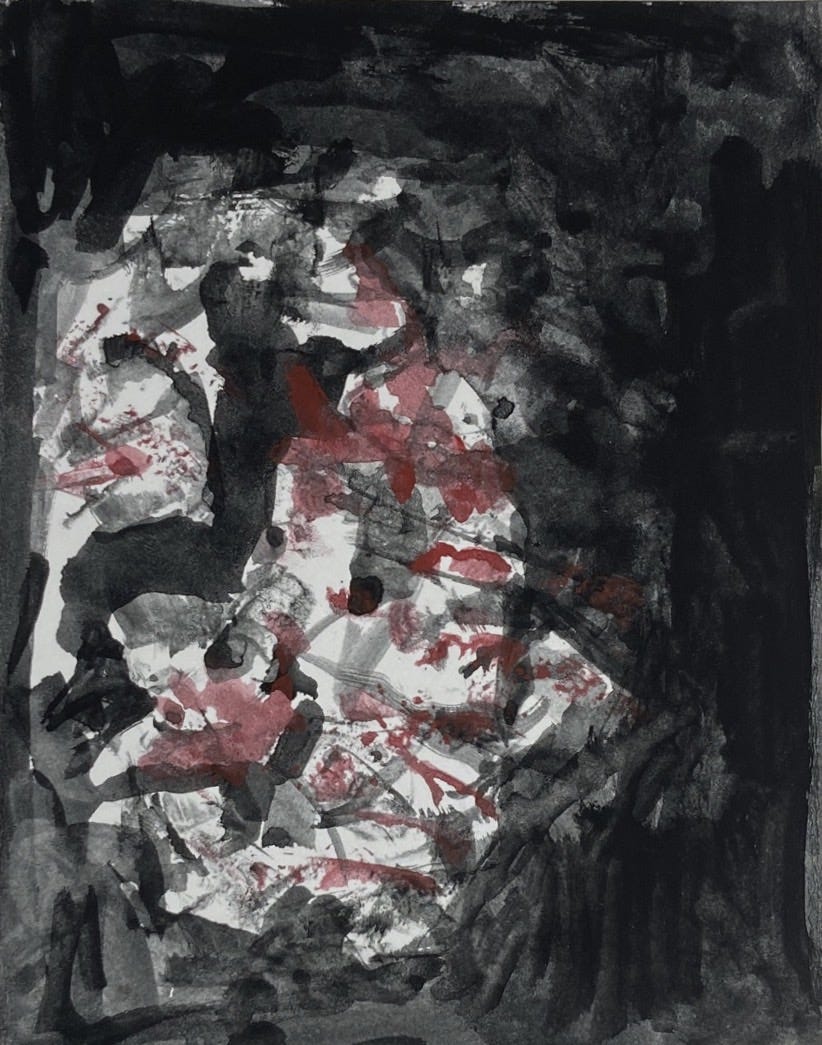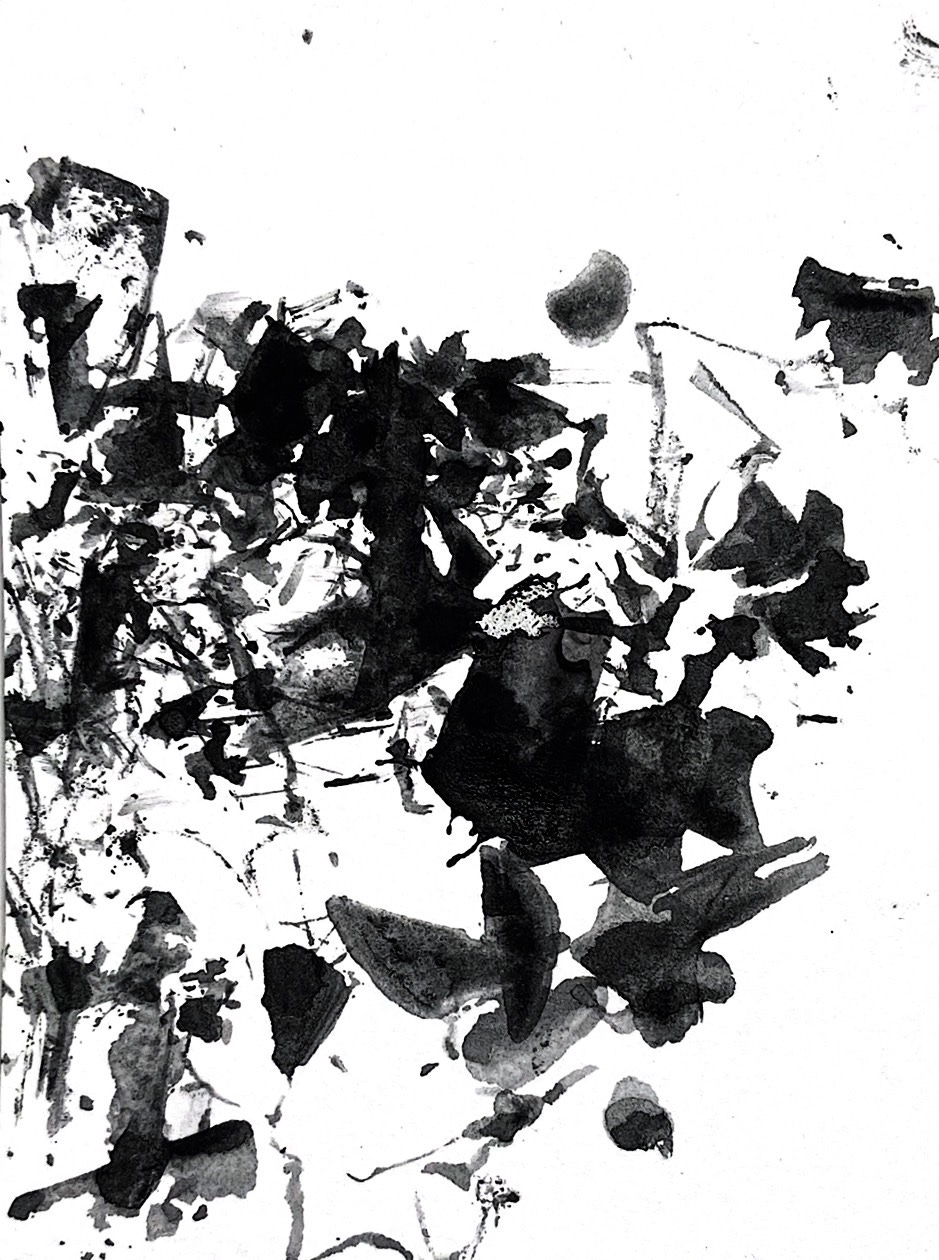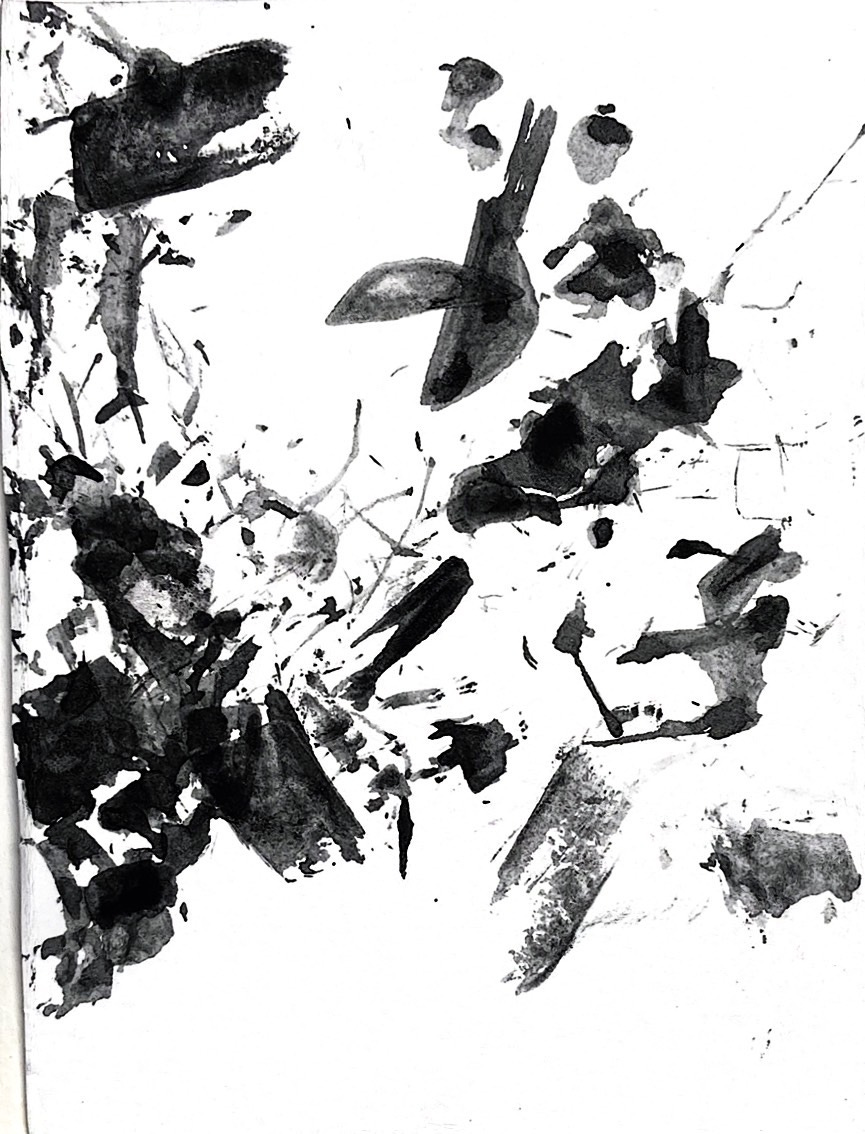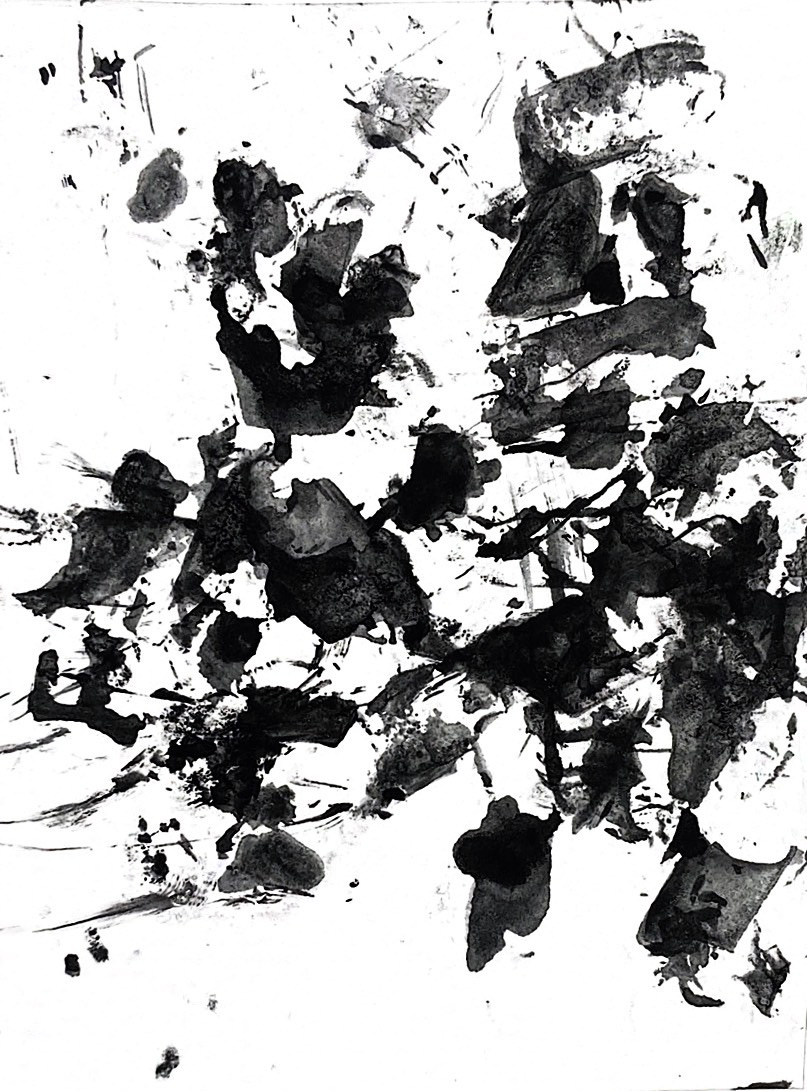Me, A Bubog Banshee
“Bubog” is a tagalog word that literally translates to broken pieces of glass. It also means something else— a term used to describe painful life experiences.
In elementary, I joined a singing contest for a Buwan ng Wika school event. I felt very beautiful in my costume: a Filipiniana kimono top with embroidered flowers, a matching skirt, and very thin abaniko slippers. I won second place and was so elated that I refused to take my costume off and wore the abaniko slippers everywhere for the entire day. I got home from school and noticed that red spots trailed behind me as I walked. The entire sole of the abaniko slipper was stained red. It took a while for me to realize that I had stepped on some glass, and it pierced through the thin slipper.
“San ka ba galing? Ayan, na-bubog ka tuloy,” My mom said, as she fixed my injury up and removed the glass shards from my foot. I remember being so confused when I initially saw the wound. From the amount of blood, it meant that the glass had been there for a while. I don’t know where and when I stepped on it, so I don’t recall the pain of something cutting through my skin. However, as my mom was removing the small glass shards from my foot, the pain was harsh and sharp. Until now, when I think of it really hard, I can still feel the sting. While writing this, I had two realizations: (1) That’s the reason why I have an aversion to flat shoes and (2) I think a lot of pain comes from remembering.
“Bubog” is a tagalog word that literally translates to broken pieces of glass. It also means something else— a term used to describe painful life experiences. In the film “Leonor Will Never Die”, the ghost of the protagonist’s son tells his mother, who is a film director, “Nasayo na ata lahat ng bubog para matapos to,” referring to an unfinished screenplay of a film she was supposed to write and direct. It made me think of another scene from a piece of media I love: in Bojack Horseman (Episode: Good Damage), the character of Diane, who is a writer, expresses frustration over the suggestion of write a lighthearted middle school detective series instead of a book of personal essays she had been struggling to write. She says “I have to! Because if I don’t that means all the damage I got isn’t good damage— it’s just damage. I’ve gotten nothing out of it.”
I associate the word “bubog” used in its alternative meaning to a time in my life where I was neck-deep in fandom (don’t ask which). I was a fanfiction writer. I enjoyed the liberating feeling of making fan work and the anonymity and flexibility that came with it. In fandom, “bubog” wasn’t just a term used to refer to painful history, it became synonymous with anything painful.
“Bakit naman puro bubog yung sinusulat mo!” I was asked, when I separated my fictional characters in the story I was writing. None of my stories were ever directly based on real life, but some of the dialogue I used in the stories were. At the time, I didn’t have a platform to candidly write about my experiences, nor was I confident enough to, so my “bubog” manifested in fictional conversations between fictional characters— in a space where an audience could enjoy them, but the actual people they were based on couldn’t find them.
When I dated during my teenage years, I used to think that my “bubog” made me interesting. I was fifteen when I had my first actual boyfriend and we bonded over how we were both mentally unwell. (I was depressed, and I would eventually find out that he is a sociopath.) He would always compliment me on thinking “maturely” and being “more experienced than other girls my age.” Like most teenage girls who had relationships with older men, it would take me a while to realize I was actually being manipulated and groomed.
When the relationship ended, I coped with the realization of how abusive and wrong our relationship was by thinking of it as if it were a story. I practiced telling it to people, trying to start at different parts: “So my first boyfriend was a murderer,” I would say, and they would gasp. “My boyfriend once started a fight with me in the school canteen because I was obsessed with 5 Seconds of Summer.”, and people would laugh and ask me for more details. “I’m in a groupchat with two of his exes, one of them was a girl he cheated on with me who found me through my art Instagram,” and I would be slightly relieved every time I told these stories, because when I was talking about them like this, it felt like I could actually do something with the pain.
“Damn girl, you should write a book about this!” I was told, many times. “I will, eventually,” I always said.
In the years that followed, I’ve gained more “bubog” that wasn’t exclusively romantic— I was betrayed by friends, hurt by my family, disappointed by people I’ve idolized. Eventually, my life would spin out of control and it happens so often that when it does, I just roll my eyes; “here we go again.” I didn’t even have the energy and time to write, so I began to wonder, what is this all for?
I briefly dated a boy for about a month and I don’t even remember what I liked about him but he hurt me, and months after our fling ended he messaged me to ask for closure and asked if we could still be friends.
“Well at least, maybe it gave you something to write about,” he said.
“Fuck you. I didn’t need all that.” I replied, and I meant it, but he probably thought it was a joke. I haven’t talked to him since.
I was observing a pattern: through these conversations with people I’ve realized that I’ve become an unwilling vessel of guilt for people who have hurt me who were seeking absolution. A nostalgia puppet for remorse and regret. A bubog banshee?
When I turned twenty one I had an epiphany: I could still create meaningful work that wasn’t reliant on painful memories. I enjoyed learning about people and their lives and writing stories that weren’t about me and what I’ve gone through. However, I still want to write about my personal experiences at length someday. I imagine that it would be like taking the last shard of glass lodged in my foot.
I have a nightmare scenario. In a barely distant future, I would have written and directed a film about my atrocious dating history to critical acclaim, and I would bow with my cast in front of a full theater, and the audience has given my film a standing ovation. Somewhere in the crowd, I would find him, clapping with the rest of them, staring me down and smirking, as if to say “Everything you are now is because I hurt you the way I did.”
I think of justice and revenge often and I wonder if I could achieve that through writing.
Eventually, I will write about all of the painful experiences I’ve had. Maybe I’ll make a film about them, maybe a book. Maybe I’ll keep their names hidden, maybe I’ll put their names in the acknowledgement section. Maybe my greatest work— the grimoire containing all my “bubog” will never see the light of day. Maybe I’ll never have to encounter a situation where someone will accuse me of lying or overexagerrating my experiences. Maybe I’ll find peace and even offer forgiveness. Maybe.
For now, I will take all the glass shards and put them up in a shrine in my home. At least, this way, I’ll know they’re mine to keep.
Written by Celine Lagundi
Monoprints by Celine Lagundi
Drawing by Christian Ray Villanueva “Life Drawing of Celine”





